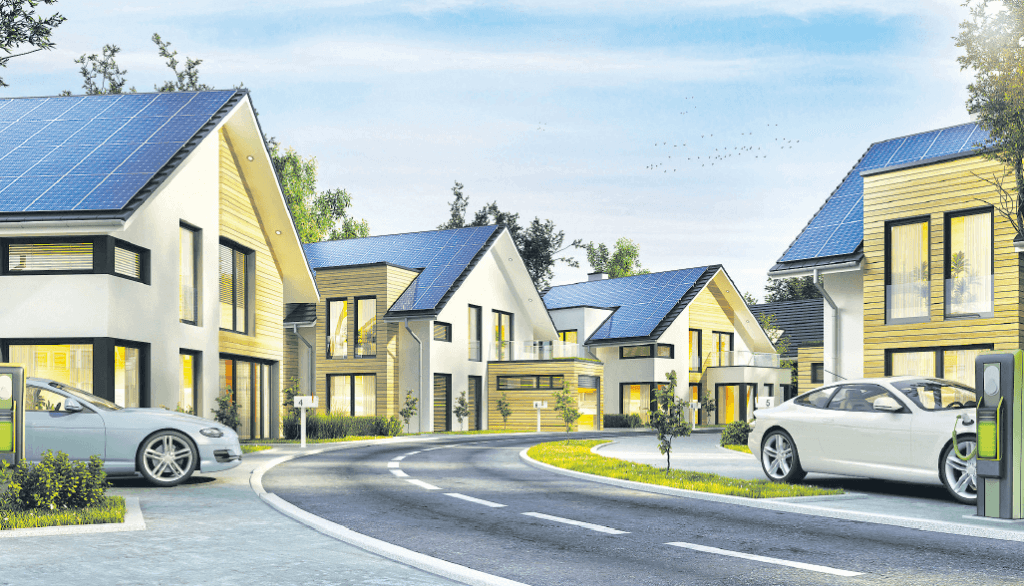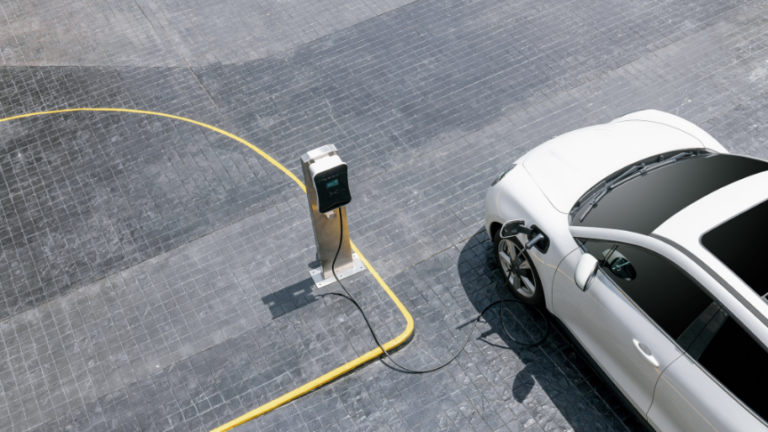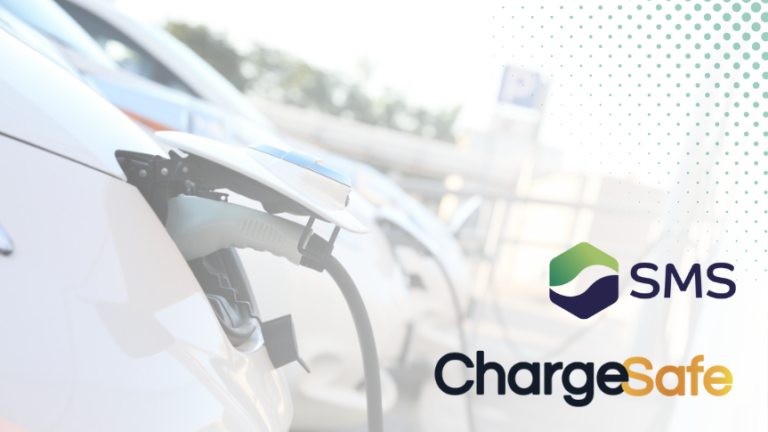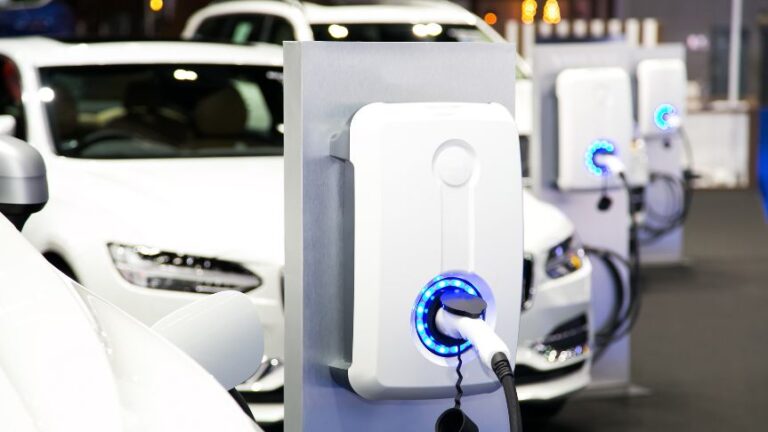With renewables, flexibility is your friend | Interview with Killian O’Connor

This article first appeared in Ireland’s Business Post
The biggest hurdle to the rollout of green energy is intermittency. Now SMS has created a platform that monitors and controls home batteries, EV chargers, and heating systems to balance demand with supply.
Solving Ireland’s energy storage problem is essential to developing a sustainable grid, said the operations director of SMS plc, Killian O’Connor. “Innovative businesses and policymakers can make that happen.”
Solar panels cannot generate enough electricity when the sun does not shine, and wind turbines cannot produce enough energy on a very calm day. That problem – known as intermittency – stops us from being wholly dependent on renewables as a primary source of energy.
Too much electricity can also be a problem. As the use of renewables increase, policymakers, investors and entrepreneurs are acutely aware of these dynamics. The need for energy storage – the capacity to squirrel away electricity for later use – is a hot topic.
ESB Networks facilitates the connection of renewable generation. It is currently deploying smart meters to homes, farms and businesses nationally, installing electric transport infrastructure and building low-loss networks improved with integrated intelligence while facilitating the active participation of customers.
“ESB Networks’s National Network, Local Connections Programme is central to achieving our 2030 targets. The programme will help unlock local flexibility and will put the structures in place to allow ever-increasing levels of flexible capacity to come on to the system,” said O’Connor. “ESB Networks is aiming to put home and business owners at the heart of this transition and we welcome the extensive stakeholder engagement process that has been undertaken.”
Our national grid needs to get smarter and be more efficient, said O’Connor. “We need signals and prices from the network operators to allow us to deliver grid-balancing services to them and move towards an approach to operate the grid more cost- effectively.
“Thankfully, this is starting to happen in Ireland. There is a road map in place to allow flexibility providers like us in SMS to enter the market. We are lagging other countries like Britain, but finally, things are moving in the right direction here. This is vital as we are coming under a lot of pressure as a nation to achieve our decarbonisation targets, and rightly so.”
Smart energy solutions
SMS has produced a way to make use of renewable energy throughout the day by pairing it, both physically and digitally, with battery storage. “I set up Solo Energy six years ago with Mark Hamilton before we were acquired by SMS in 2019,” said O’Connor.
“We both came from renewable energy backgrounds and know that space extremely well, including the challenges around renewable generation and those faced by the grid due to intermittency. “We set up the business with a view to coming up with smart energy solutions for the grid. Six years ago, most of the action was in large scale battery systems, big shipping containers in fields that provided storage and balancing actions for the grid.
“We face stresses on the grid during peak demand, for example between 5pm and 8pm when everyone starts using more electricity. These peaks can be managed using ‘flexibility assets’ such as home batteries, controllable electric heating and smart EV chargers. You need to turn down demand during those times by switching your home to battery power or delaying the charging of your EV, for example, to reduce pressure on the grid.
“In the past, we simply increased or decreased output from gas-powered plants to provide flexibility but we need to move away from fossil- fired flexibility towards things like batteries that can release carbon- free solar or wind-generated power back into the system.”
Companies like SMS give electricity consumers the opportunity to get involved in the energy system so they can buy, sell and trade energy within the community while also supporting the wider grid network and local renewable energy generators. Their USP is FlexiGrid™ – a cloudbased aggregation platform that turns intermittent renewable generation into a smart, stable energy system by controlling distributed flexible energy storage assets such as batteries to balance local supply and demand.
“This means we use as much renewable energy as possible and the grid sees improved flexibility, which is crucial to maintaining a secure and stable electricity system.”
“We take a 10 to 15-year view of the grid. Irish homes will have solar panels, batteries and electric vehicles. Heating will be electrified, and more heat pumps will be coming onto the grid. But if assets are not controlled in a smart way, the grid will experience ever-increasing demand.
“We cannot just keep upgrading the system by spending money on new infrastructure, we need to be smart. We need to take a ‘flexibility first’ approach to help spread demand throughout the day. This is the most cost-effective way to operate a decarbonised electricity system.
“At SMS we have developed a platform which monitors and controls home batteries, EV chargers and smart electric heating systems. It is basically a virtual power plant system that takes the pain away from the customer: our platform controls all the customer’s assets in symphony with the grid, while saving the customer money.
“Our focus over the past six years has been on the UK market due to more favourable policies, active local and national flexibility markets and a more advanced smart metering rollout. This ultimately led to the acquisition of Solo Energy by SMS plc, a major player in the smart metering sector. SMS has always had the same view of the world as Solo and together we are now on a mission towards the decarbonisation of energy.”
Increased demand
New regulations in Britain aim to make it easier for electric vehicles to export electricity from their batteries back onto the power grid or to homes when needed. They also help large-scale and long-duration batteries play a role in storing renewable energy, so that it is available when solar and wind power generation levels are low.
“We are leaders in renewable generation in Ireland and have just increased our 2030 target to 80 per cent of all electricity generation coming from renewables,” said O’Connor. “As we continue to electrify the heat and transport sectors, the increased demand will need to be matched by a significant build-out of offshore wind and onshore solar farms. It will be a huge win for the country to meet those targets but this means that everyone needs to work together now, from wind and solar developers to flexibility providers, and from grid operators to policymakers.”
O’Connor believes one of the biggest barriers to adoption is the cost of things like home batteries and heat pumps. “We need to think about removing these upfront costs for the energy user. We need to bring energy consumers on board by rewarding them and removing steep costs. This is how we will deliver our 2030 climate action targets.”
Read more about how SMS, through our FlexiGrid™ platform, is helping Ireland realise its clean energy goals.


